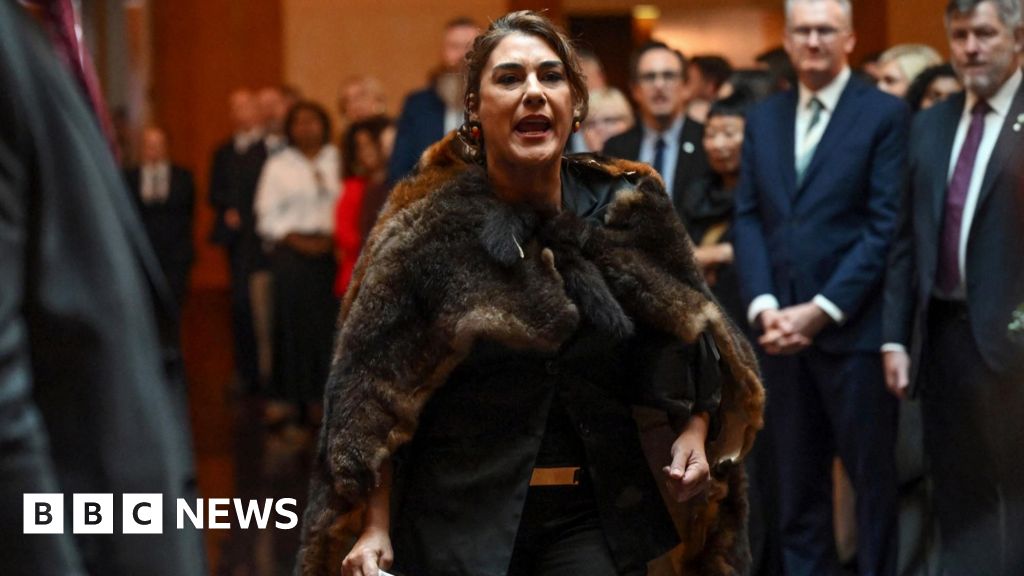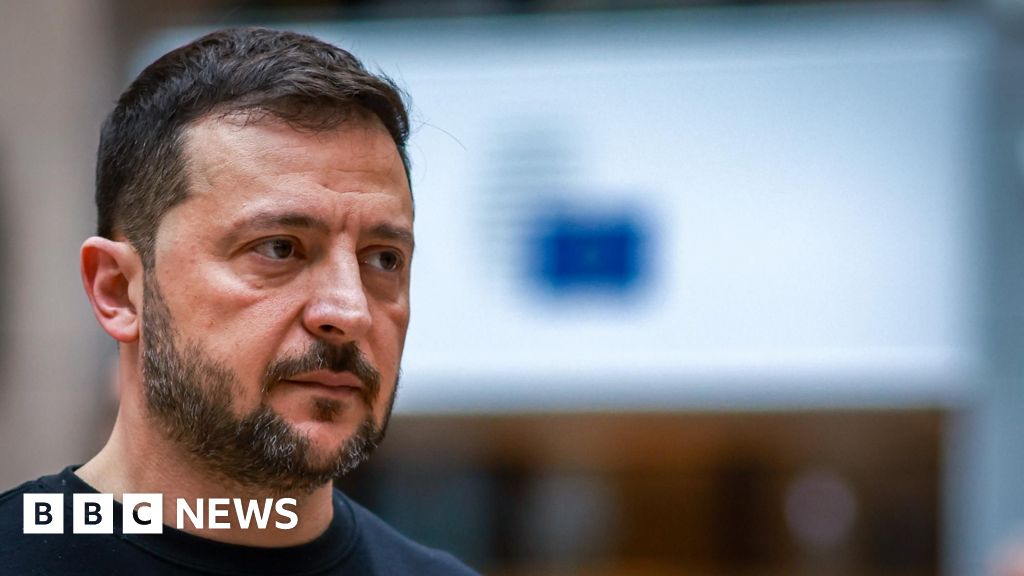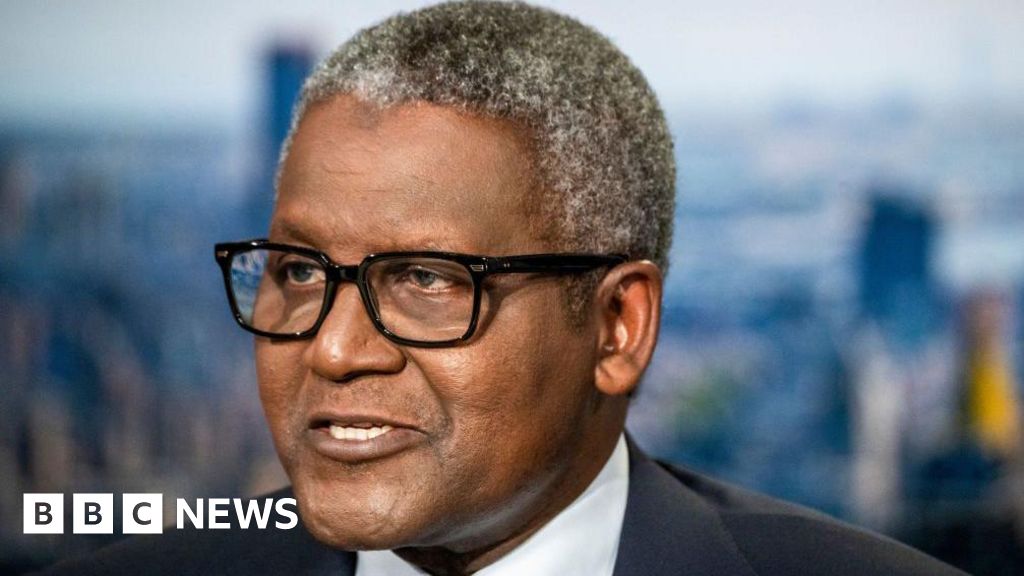ARTICLE AD BOX
By Andrew Harding
Donbas region
Svetlana Kravchenko says karma will catch up with anyone in Bakhmut who supported the Russian offensive.
A clash of loyalties is dividing opinion among residents in Bakhmut - a town on the front line in eastern Ukraine's Donbas region.
Sometimes it slips out as a whisper. More often, it is hidden behind euphemisms and shrugs - and carefully ambivalent replies. And then, once in a while, a fiercely pro-Russian sentiment is simply blurted out, like the crack of a gunshot, here in the rolling green hills of the Donbas.
"This is Russian territory. Ukraine is the occupier here," said a man in overalls, standing with a group of council workers. They had been clearing weeds in Bakhmut - a Ukrainian town currently within easy earshot of Russian artillery.
And the man was not alone in his apparent contempt for Ukraine's territorial integrity. Beside him, 65-year-old Yelena merely couched her views in more ambiguous terms.
"I don't know Putin personally, so I can't tell you what I think of him. But I don't see Russia as the enemy. We all lived together in the Soviet Union. So, let's see what happens [if Russia occupies the town]," she said.
The notion that Ukraine stands resolutely united in opposition to Russia's invasion may hold true for much for the country. But here in the Donbas, there is a large ethnic-Russian minority, a painful history of eight years of separatist conflict with Russian-backed militias and - particularly for an older generation - a powerful nostalgia for the USSR.
Workers clear weeds in Bakhmut
The result is an increasingly fraught clash of loyalties, with at least some residents of Bakhmut - a key hub for people fleeing from the Luhansk region further east - unashamedly supportive of the latest Russian invasion.
"Putin is a clever guy, a clever KGB man," said an 80-year-old retired engineer, as she sat in the kitchen of a local cafeteria peeling potatoes. If Russians seized the town, it would "make no difference to me," she whispered, before falling quiet when a colleague came into the room.
"I'm a creation of the Soviet Union. We all lived together in those days and I have relatives everywhere. I'm not going to tell you what I think of Putin," said another elderly ethnic-Russian woman who was part of the work group preparing to plant rows of young trees at the entrance to Bakhmut.
Some Ukrainians here have brushed aside these pro-Russian comments as the harmless grumblings of an out-of-touch generation - of a handful of elderly pensioners who are reluctant to leave their homes, and whose opinions are unlikely to have any significant impact on the course of this war.
But in other parts of Ukraine, recently liberated from Russian occupation, there is evidence that collaborators may have actively assisted the Kremlin's troops. And today, in front-line towns like Bakhmut, there are concerns that pro-Russian sentiment could pose a real risk, particularly if it is shared by officials in local administrations.
"These guys are trying to have it both ways - win or lose," said a local businessman, Dmytro Kononets, describing what he claimed was the attitude of some figures in the town council.
He contrasted the relatively low-key public comments of the town's Mayor, Reva Oleksiy, to the loudly defiant tone struck by many of Ukraine's younger regional governors and public officials, and asked why the council was busy employing people to dig up weeds when they could be digging trenches instead.
"Obviously, they don't really want to prevent [Russia from seizing the town]. It's like they're just pretending. It's just ridiculous," said Kononets, adding that he knew many locals who got all their news from Russian television and believed "that nonsense".
But the council's supporters said such suspicions were misplaced. They defend the beautification campaign being carried out on the town's streets as a inspiring and defiant display of business-as-usual in the face of Russian aggression.
"This is our form of resistance," one of the council workers involved told us.
"The mayor is firmly pro-Ukrainian, without doubt," said a town councillor, who nonetheless asked that we not print his name.
The mayor himself declined to give an interview. He has held the same post for more than 30 years. His deputy, Maxim Sutkovyi, dismissed suggestions that the mayor might be less than loyal to Ukraine as "beneath contempt".
"Bakhmut is part of Ukraine. Our job is to protect daily life here, to keep doing our jobs and not collapse into hysterics. No doubt there are [collaborators] here, but it is up to the security services to root them out," said Sutkovyi.
While most families in Bakhmut have already left the town, following official advice, there are plenty of local volunteers, in uniform, who have stayed on to fight any Russian attack.
"We'll defend this place to the death," said one farmer, Slava, who joined the home guard and was busy loading supplies into his car to take to colleagues manning trenches on the edge of town.
Svetlana and other residents pray in a Ukrainian Orthodox Church, situated in the basement of her charity's office.
But with air raid sirens wailing across the town, Russian forces poised to take full control of Popasna, 30km (19 miles) to the east - and the Russians also pushing forwards from the north and the southeast - it is no surprise that old suspicions and new tensions are surging here.
"Karma will quickly catch up with them," said Svetlana Kravchenko, 57, of anyone in Bakhmut who supported the Russian offensive.
She helps run a small charity collecting food and other supplies to distribute to the town's soldiers and to elderly civilians in the surrounding villages. Their basement office is also home to a Ukrainian Orthodox Church, where she and others pray daily. Most of the more traditional churches in Bakhmut are still officially linked to the Russian Orthodox church, whose leadership has publicly endorsed President Putin's invasion.
"Everyone makes their own choice. And they will have to answer for that. Maybe some people here want to surrender [to the Russians]. But when this conflict is over, when the shelling and shooting stops, then the traitors will be punished, either in this world or the next," said Kravchenko.

 2 years ago
25
2 years ago
25








 English (US)
English (US)